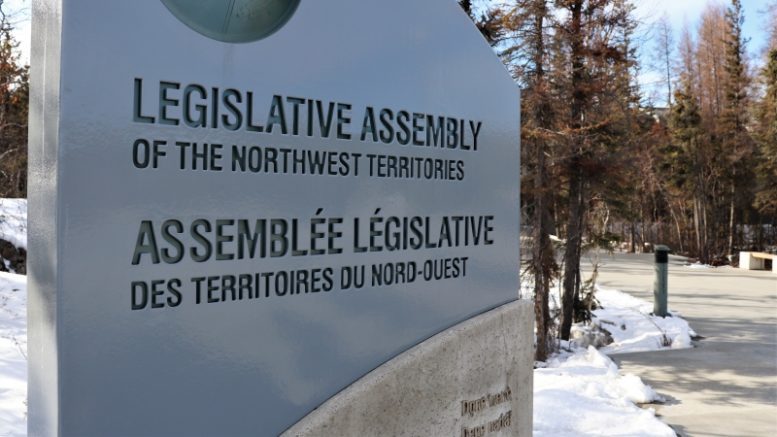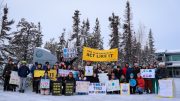Even with the proposed offsets, the carbon tax is going to cost residents, says Sara Brown.
Brown is the CEO of the Northwest Territories Association of Communities (NWTAC), which represents all 33 communities in the territory.
On Thursday evening, she presented to the Standing Committee on Government Operations during a public meeting on the proposed carbon tax.
“Community governments are not going to be revenue-neutral in this process, despite many assurances to that effect,” said Brown.
Committee Chair Kieron Testart clarified that being revenue neutral meant re-investing revenues, while cost-neutral meant not incurring additional costs as result of a tax, which was Brown’s intended meaning.
Brown explained that communities are already underfunded by about 37 per cent and “do not have any resilience… to absorb these types of increases.”
According to Brown, the GNWT has told the NWTAC that communities will need to raise taxes on residents to offset the increased costs of the carbon tax.
Later in the meeting, MLA Daniel McNeely asked Brown about communities reducing their use of fossil fuels rather than ask for greater transfer payments to cover the costs.
“Efficiency has to be the first goal,” replied Brown, and said that the NWTAC helped coordinate ten audits that resulted in eight communities getting energy-efficiency upgrades like LED lights and programmable thermostats.
During her presentation, Brown also said there needed to be better communication surrounding the carbon tax.
Bills 42 and 43 govern the implementation of the carbon pricing plan and are sponsored by the Department of Finance.
According to Brown, NWTAC has tried to get the department to speak with communities to explain how they will be affected but it declined to do so until the legislation is approved.
‘Minimal influence’ to change bills
Both Brown and the committee criticized their lack of ability to substantially change the bills due to the way they were written.
“We’re left in the uncomfortable position of having minimal influence over the details of carbon pricing,” said Testart.
Brown later added that there was “no meat” in the bills. The technicalities will come through regulation instead of legislation.
Offsets
According to the Department of Finance, between the tax exemptions (like heating fuel) and other offset programs like the Cost of Living Offset (COLO), the average household will actually come away with $400.
The government is also giving the Northwest Territories Power Corporation a rebate of about $3 million on diesel used to produce electricity. The rebate is said to prevent the costs of power from going up.
The full effect of the carbon pricing plan remains to be seen as it is only supposed to start in September, once MLAs pass Bills 42 and 43 in the upcoming session of the Legislative Assembly.
Francis was a reporter with CKLB from January 2019 to March 2023. In his time with CKLB, he had the immense pleasure and honour of learning about northern Indigenous cultures.









